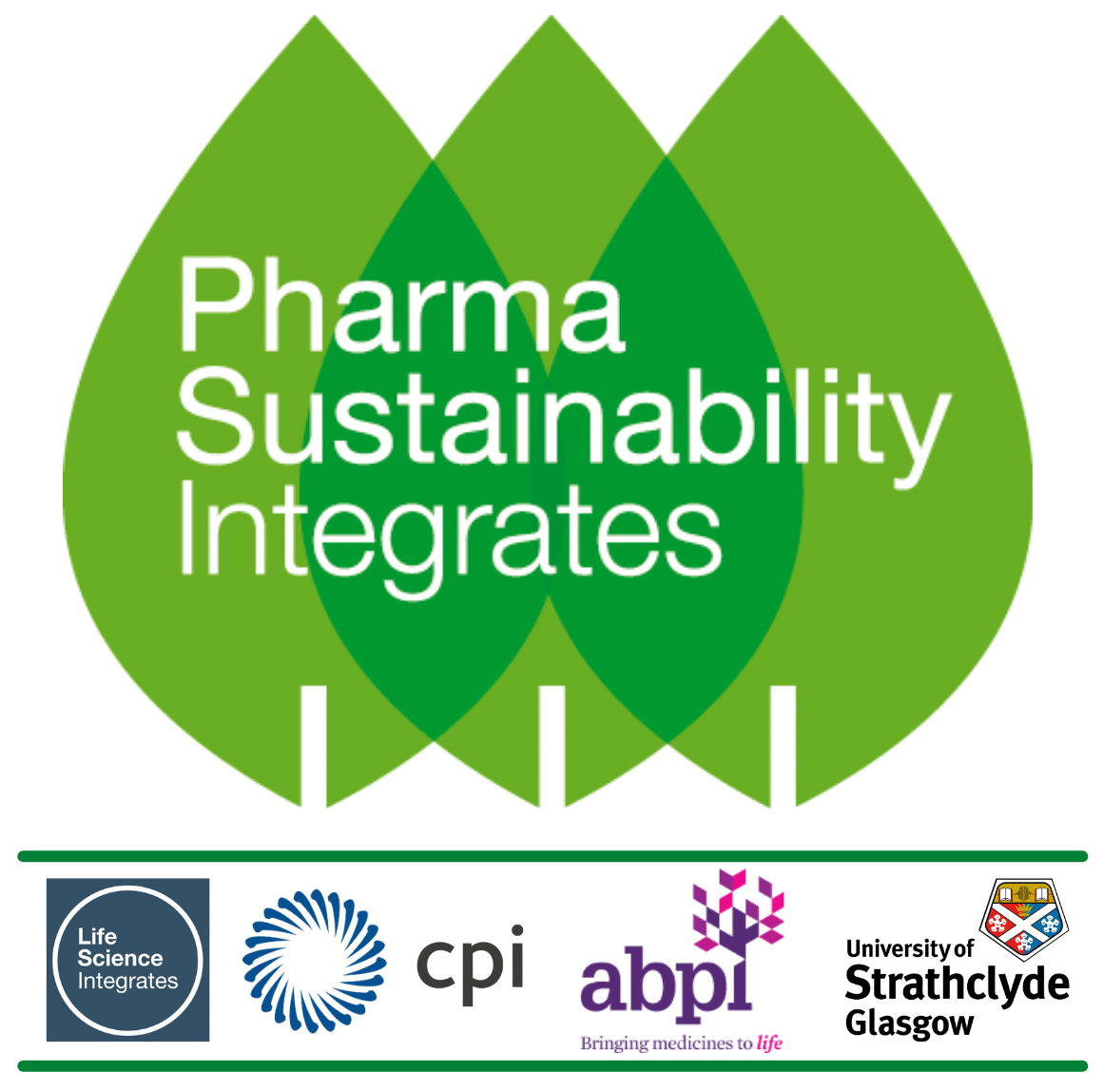
101 days on from COP26, the life sciences sector has lost no momentum in the journey to net zero. On 24th February, Life Science Integrates, CPI, The Association of the British Pharmaceutical Industry (ABPI) & the University of Strathclyde hosted a unique conference focused on the intersection of two major challenges of our time: healthcare and sustainability. The event, Pharma Sustainability Integrates, connected 500+ leaders across pharmaceutical companies, industry bodies, academia and government to demonstrate how cross-sector collaboration can bring COP26 forward for this sector and, ultimately, our planet.
‘An industry that proactively responds, because it’s the right thing to do’
Alix Mackay, Director of The Life Sciences Marketing Academy, opened the event with a message of optimism about the capabilities of this sector to drive positive change. She emphasised that we’ve gone beyond the stage of simply discussing the importance of sustainable principles: ‘this event has to be about the practical realisation of those principles and the active leadership to make them happen.’ She acknowledged the immensity of the leadership required, but, reflecting on the pharma sector’s success in the pandemic and inherent moral courage, she shared her confidence in this sector as ‘an industry that proactively responds, because it’s the right thing to do’
‘Consumers will be asking “how green is my drug?”’
Government, industry and academia reflected on the legacy of COP26 in a discussion between George Freeman MP, Minister for Science, Research and Innovation, Pinder Sahota, General Manager at Novo Nordisk UK, and Sir Jim McDonald, Principal and VC of the University of Strathclyde. George acknowledged the power of the healthcare sector as ‘a major £70-80bn industry employing 250,000 people in the UK in factories, labs, plants and supply chains, and a major part of driving that shift to a net zero economy.’ He praised the progress the sector has made and highlighted two key areas for future improvement in supply chains and promoting healthier living.
Pinder emphasised the importance of improving supply chains as the biggest challenge the sector faces, along with the need to harmonise global standards to allow clear and transparent progress. He shared his vision of the future of this sector as ‘one that not only avoids harming the planet, but actively improves the health and well-being of patients around the world’, hoping that COP27 would have a strong focus on resolving the health crises that climate change is causing. He raised questions concerning how to achieve the best outcomes globally, how to ensure regulatory approval, and how to balance patient choice with sustainability, explaining that ‘we don’t have all the answers yet, but we know we need to be part of the conversation with patients, governments, the NHS, and the global regulatory community – I can’t emphasise the need for collaboration enough’.
Sir Jim concluded the discussion, stating that ‘the life sciences and pharma industry is absolutely pivotal to a healthy economy, a healthy society, and has a real role to play in the journey to net zero.’ He praised the sense of energy and the commitments made at COP26, and shared his belief in the ability of this sector to innovate: ‘2050 is just round the corner, and this industry can really be an exemplar in reducing the carbon footprint – this conference will be a key part of that journey.’
Decarbonising pharma supply chains – ‘this is a partnership approach’
Decarbonising the supply chain emerged as a key goal among all contributors. Nazneen Rahman, CEO of YewMaker, showcased the Sustainable Medicines Partnership, a science-based solution to make medicines more sustainable. ‘The central problem we’re tackling is that too many medicines are thrown away’, she explained, stating that each year 4.5tr medicines are made costing $1.4tr – but billions are discarded unused or lost due to packaging or delivery issues, resulting in huge environmental and financial costs. The link between sustainability and costs was reiterated by Johnathon Marshall, PwC: ‘as you decarbonise, you’re also managing your cost-base. Increasing efficiencies releases cash into your business, so it’s the right thing to do economically for any corporate as we move forward.’
Mark Talford, Medicines Manufacturing, called for collaboration, stating that achieving net zero doesn’t simply require changes in big pharma companies, but requires collaboration across the whole value chain. Adrian La Porta, Bryden Wood, gave an engineering viewpoint: ‘The problem is urgent, there are lots of technical solutions available, but implementation is not moving fast enough, and that’s where engineering can help’. Wouter Biesemans gave a bio-pharma perspective, explaining Ajinomoto’s four key steps to reduce the carbon footprint: clear communication, transparency, improvement and innovation.
Importantly, a customer perspective of the supply chain was presented by Claire Foreman and Alexandra Hammond from NHS England and NHS Improvement who explained the NHS net zero plan. The NHS was the first health system to declare its net zero target, with medicine uses and their supply chain accounting for a quarter of the NHS’s emissions. ‘This is a partnership approach’, explained Claire, ‘the NHS is very much in listening mode to hear from our supplier colleagues about what can be done’. They both shared the encouragement they took from witnessing the industry and health service come together to solve seemingly unsolvable problems in the pandemic, inspiring belief that this sector can tackle the problems of sustainability. ‘The healthcare system is adversely impacted by climate change in a disproportionate way’ Alex stated, explaining that, when asked, 92% of the general public believe it is important for the health system to work in a more sustainable way. ‘Research shows that the public want to change their behaviour’ stated Claire, emphasising that change doesn’t have to be cost incurring, but is ‘a global push about what we can do collectively to make things better.’
‘Working collaboratively is the only way to drive change’
The need for collaboration was a core theme throughout the event, and Fiona Adshead reiterated this message. She explained that the Sustainable Healthcare Coalition, which she chairs, was born out of the NHS’s recognition of the need for collaboration across the whole supply chain, from manufacturers to patients: ‘by working with clinicians and patients we can really drive change’. This theme was very much part of the industry ambition discussion led by members of the ABPI. ‘When we work together, we can have positive implications for our own organisations and in the sector more broadly’ claimed Juliette White, AstraZeneca. She highlighted the importance and challenges of measuring the carbon footprint and emphasised the need for connection. ‘The healthcare sector accounts for just over 4% of global emissions – the equivalent to a small country. But an individual company can’t affect the change we need without support from the wider community.’
Collaboration starts from the beginning of development, and Brian Henry, Pfizer, gave insights from a product design perspective. ’The design choices we make very early on will live with our product for a very long time’ he commented, explaining the importance of building in sustainability early on, from the selection of excipients to packaging design.
‘Working collaboratively is the only way to drive change’ stated Claire Lund, GSK. ‘I think COP26 was a real turning point with 50 countries committing to low carbon and climate resilient healthcare systems.’ Sharing GSK’s sustainability goals, she stressed that reducing cost and improving sustainability aren’t either-or options, many solutions are win-wins for both. Jarle Rud also shared industry goals, reflecting on Novo Nordisk’s successes. ‘By 2030 we are going to have zero carbon emissions across our whole operation, business and travel’, he claimed, as he showcased their successful pilot scheme to tackle waste by recycling and repurposing used insulin pens.
On Manufacturing – ‘The driver here is very much scale and sustainability’
The final showcases of the day focused on manufacturing. Chris Price from CMAC at the University of Strathclyde shared a positive mindset, regarding net zero goals as opportunities rather than challenges. He laid out the manufacturing dilemma, explaining that making just one kilo of a product creates 100kg of hazardous waste and uses 1000L of water. But through changes such as continuous processing, computer aided design and innovating chemistry, he showed how we can work towards reducing this waste. John Arthur, Director of MMIC, CPI, focused on oligonucleotide manufacture, stating the need to ‘stick with the chemistry’ to reduce waste: ‘The driver here is very much scale and sustainability, and that’s great for the environment, great for the country, and it’s great to be part of something so innovative’.
‘A journey of 1000 miles begins with the first step’
Frank Millar, Chief Executive, inspired optimism as he reflected on CPI’s journey to sustainability. ‘For an industry that emits 50 million tonnes of CO2 per annum, you can feel the scale of the challenge,’ he explained, acknowledging the need for disruptive and systemic solutions. But he shared his confidence in the sector: ‘a journey of 1000 miles begins with the first step – and the pharma industry has very much taken that first step.’ He concluded that ‘there is no trade-off between health and sustainability – we need the best outcomes for patients and for the environment’.
Putting ‘net zero at the core of what we do’
The day ended with closing remarks from Ivan McKee, Scottish Minister for Business, Trade, Tourism and Enterprise, who reflected on COP26 and highlighted the need for decisive action in which industry and government act together. He praised the progress being made across industry, academia and government in the form of upskilling, investment, new green jobs, and the tireless response of the sector to the pandemic. ‘I hope we can take forward the goal of sustainable growth with net zero at the core of what we do’.
LSI would like to thank the founding sponsors and event partners CPI, ABPI and the University of Strathclyde along with our other sponsors PwC, Siemens and UKRI Innovate UK for supporting such a vital and uplifting event. But the success is largely attributed to the speakers, attendees, and all those working hard across this sector to use innovation and moral courage to turn the challenges of sustainability into opportunities to improve the health of both patients and our planet.
